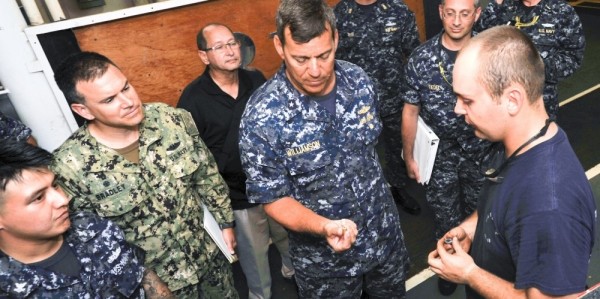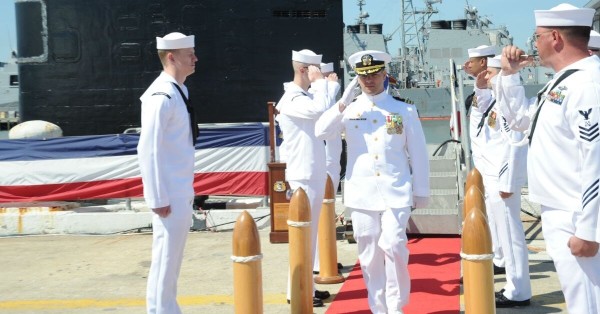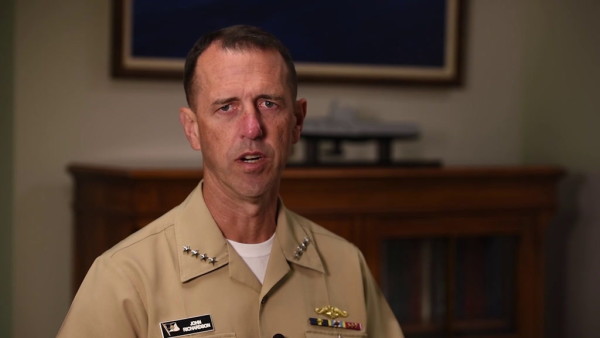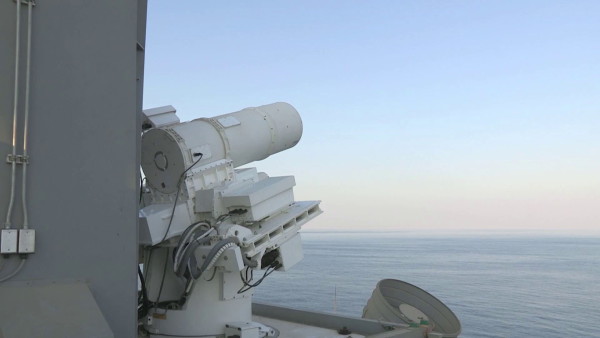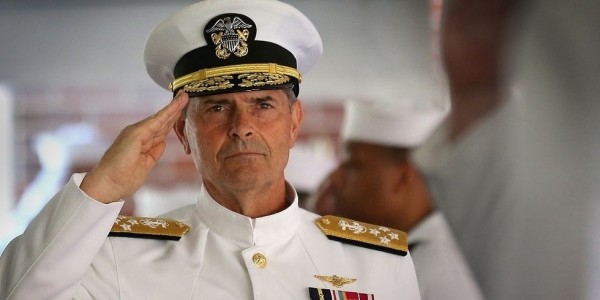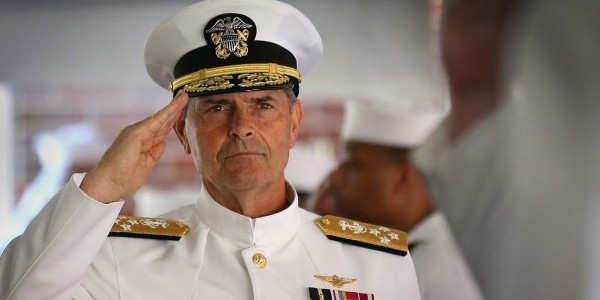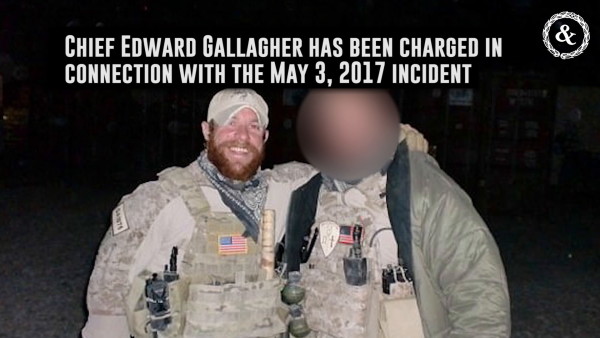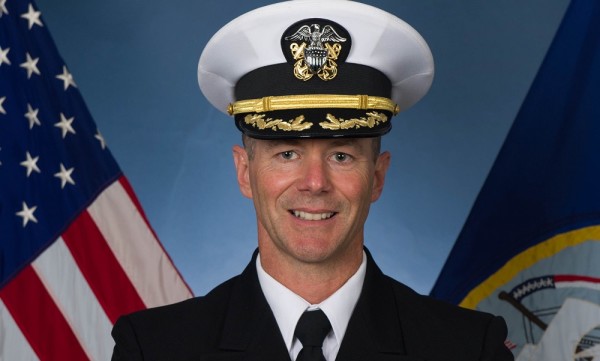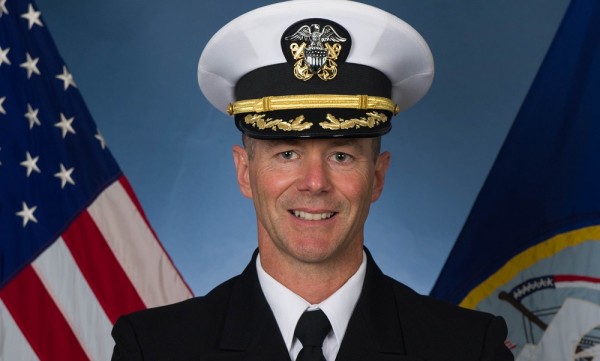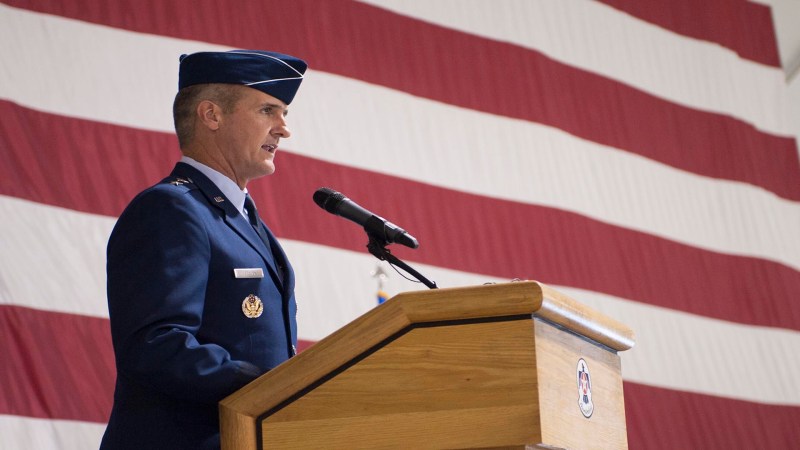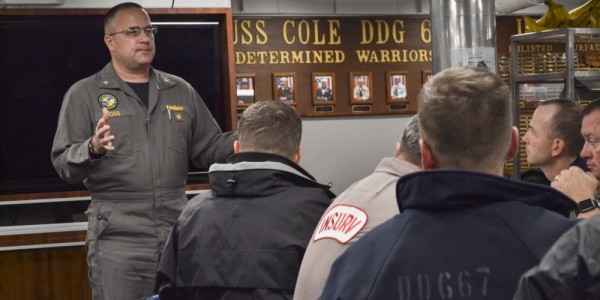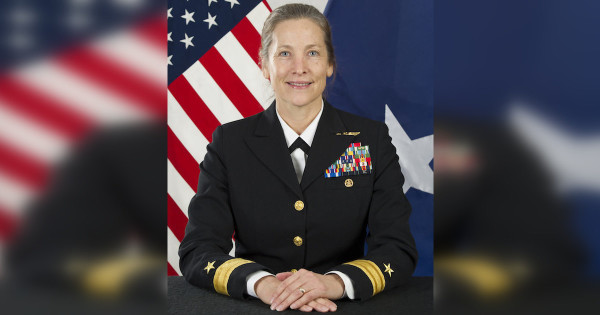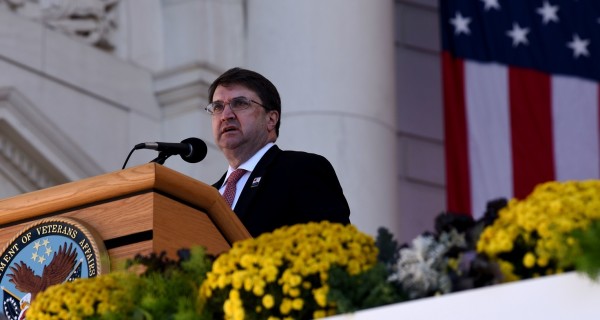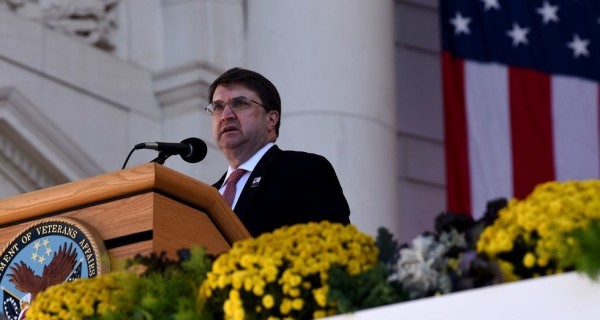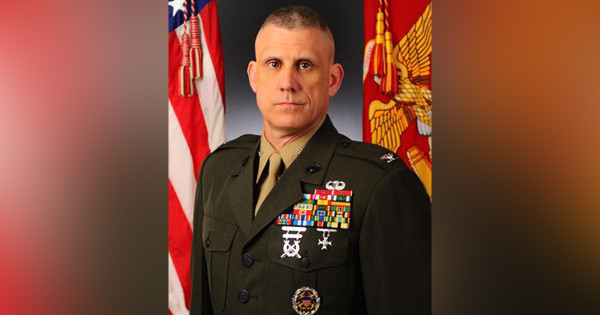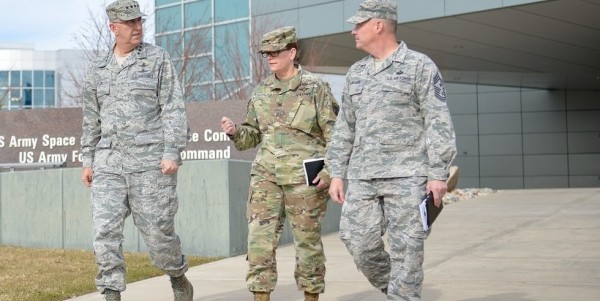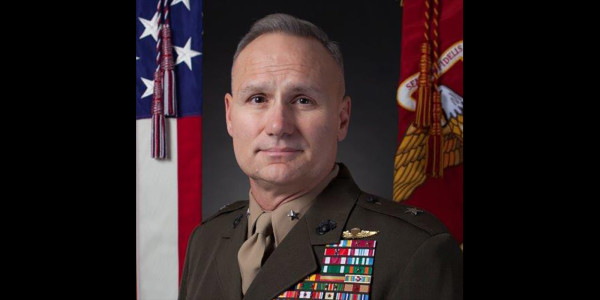A one-star Navy admiral was fired in July for having an affair with a subordinate employee who told investigators that she fell in love with him, Task & Purpose has learned.
On Aug. 2, Rear Adm. Stephen Williamson was relieved as director of industrial operations at Naval Sea Systems Command after the Navy Inspector General’s Office found he had a “consensual, but inappropriate, personal relationship,” NAVSEA spokeswoman Colleen O’Rourke said.
The woman with whom Williamson had the affair was a NAVSEA employee who had known Williamson for about 10 years prior to the affair, according to a redacted copy of the Navy IG investigation that Task & Purpose obtained through a Freedom of Information Act request.
After initially denying she had a physical relationship with Williamson, the woman admitted that the two had been together several times from roughly Memorial Day to Labor Day in 2018, according to the investigation.
“When it happened, it always like, oh, my God, that shouldn’t have happened, we know better, it’s the wrong thing,” she told investigators.
Rumors of the affair spread as co-workers noticed how Williamson and the woman acted around each other, the investigation found. One witness told investigators that there was “too much weird interaction” between the two during a business trip.
The couple also drew attention when they shared a rental car and stayed at the same hotel during one trip, although the woman told investigators that they did not have sex at that time.
Co-workers told investigators that it appeared the woman received preferential treatment from Williamson, who assigned her the highest priority work, possibly giving her an advantage when she looked for another job. She also started attending division directors’ meetings even though she wasn’t a director, the investigation found.
One witness told investigators that it was clear she was giving Williamson her take on what had transpired at the meetings, which eroded trust within the group and “really caused some churn.”
One witness talked to Williamson twice about the appearance he had an improper relationship with the woman, the investigation found. On both occasions, Williamson became frustrated. While he did not deny the affair outright, he gave the impression that there was nothing to the rumors. Regarding the rental car he shared with the woman, Williamson said that four people were initially supposed to have the same car but two of them did not make the business trip.
Before the IG investigation began, one of Williamson’s superiors gave him some “fatherly advice” to avoid the appearance of impropriety.
“I didn’t ask him: Hey, are you having affair?” said the admiral, whose name was redacted from the investigation. “I just said, in my experience — and he says, you know, you driving down in a car with some – a woman that’s younger than you, innocent or not, is just – that’s just not something that you want to put yourself in that position And I said, ‘I’ll leave it at that.'”
The unnamed superior officer, who had known Williamson since 1996, told investigators that he thought Williamson would heed his advice at the end of their conversation. He explained why he didn’t order Williamson to stop seeing the woman.
“Nobody said he’s having an affair with somebody,” the admiral said. “Because if someone had come to me and said he’s having an affair with somebody, I would have called the IG. All they said is, hey, he’s, you know, he’s been seen in a car and he was down seen in the same hotel room. And I thought when you go on travel – okay, so being in the same hotel with somebody doesn’t mean you’re having an affair.”
Williamson could not be reached for comment on Tuesday. On May 17, the admiral provided a written response to the IG in which he admitted having an “inappropriate affair” with a subordinate, the investigation found.
“He wrote that the inappropriate relationship was a mistake of judgement and personal failure that he deeply regrets,” the investigation found. “RDML Williamson added that the relationship was a lapse and contrary to his core values and his responsibilities to his family and the Navy.”

